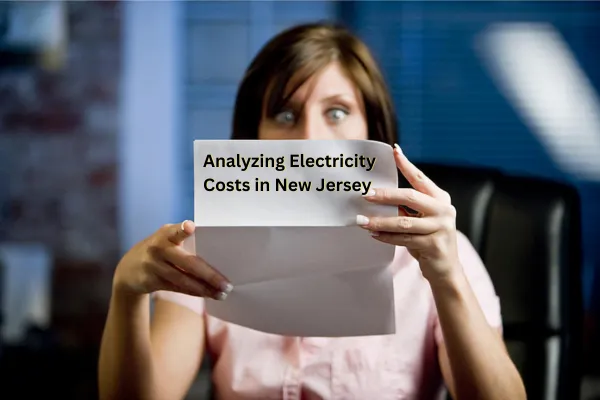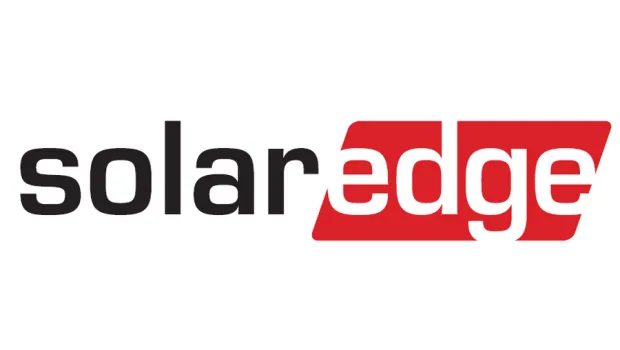
Analyzing Electricity Costs in New Jersey
Understanding Electric Rates in New Jersey
Electric rates in New Jersey can be a bit complex to wrap your head around, but fear not - I am here to shed some light on the subject. When we talk about electric rates, we're essentially referring to the amount you pay for electricity consumed in your home or business. In New Jersey, these rates are determined by a variety of factors, including the cost of generating electricity, distribution costs, and government regulations.
Understanding these different components is crucial if you want to get a grip on how much you're shelling out for your monthly electric bill. Now, let's dive into this electrifying topic and break down the nitty-gritty details of electric rates in the Garden State.
First up, let's talk about how electric rates in New Jersey are structured. Unlike some states where there is a one-size-fits-all approach to pricing, New Jersey offers different rate structures depending on your energy usage patterns.
You might have heard terms like flat-rate pricing or time-of-use pricing thrown around - these are just fancy ways of saying that how much you pay for electricity can vary based on factors like when you use it and how much you use. Understanding these nuances can help you make smart choices when it comes to managing your electric bill and potentially saving some cash.
Another crucial aspect of electric rates in New Jersey is knowing who sets them and why they fluctuate. The New Jersey Board of Public Utilities plays a key role in regulating electric rates in the state, ensuring that they remain fair and transparent for consumers.
Factors such as changes in fuel prices, infrastructure upgrades, and even weather patterns can all impact electric rates, causing them to rise or fall over time. By keeping an eye on these trends and staying informed about what drives these fluctuations, you can better anticipate changes in your monthly electric bill and plan accordingly.
Understanding electric rates in New Jersey is essential if you want to take control of your energy expenses and make informed decisions about how you consume electricity. By familiarizing yourself with the ins and outs of rate structures, regulatory bodies, and market dynamics influencing pricing trends - such as the growing popularity of solar energy solutions - you'll be better equipped to navigate the electrifying world of energy costs with confidence.
Current Electric Rates Overview
So, let's dive right into the nitty-gritty details of the current electric rates in New Jersey. Picture this: you're sitting at your kitchen table, staring at that elusive electric bill that arrives every month like clockwork.
Well, my friend, let me tell you a little secret - understanding these rates can make a world of difference in how much you save. In the Garden State of New Jersey, electric rates can be quite the rollercoaster ride.
From utility charges to supply costs and everything in between, it's like trying to unravel a tangled knot. But fear not!
Once you get a grasp on these rates, you'll be on your way to being an electricity cost guru. Now, let's talk numbers.
The average residential electricity rate in New Jersey hovers around 16 cents per kilowatt-hour (kWh). Compare that to the national average of about 13 cents per kWh - yep, we're paying a bit more here.
But hey, it's all part of living in this beautiful state! When it comes to commercial properties in New Jersey, businesses are looking at an average rate closer to 12 cents per kWh.
It's all about scale and usage patterns here. So whether you're running a cozy coffee shop or a bustling office building, those rates will definitely impact your bottom line.
And hey – did I mention solar? Yep, solar power is making waves in New Jersey when it comes to cutting down those pesky electric bills.
With incentives and programs popping up left and right, exploring solar options might just be the ticket to saving some serious cash on your electricity costs. So keep your eyes peeled for more insights on how solar in New Jersey is changing the game!
Key Insights on Electric Rates
Electric rates in New Jersey can be a bit tricky to decipher, but fear not! Let's break it down for you. One key insight to keep in mind is that electric rates can vary depending on the time of day.
This means that consuming electricity during peak hours might cost you more compared to off-peak times. Another important factor is the type of plan you're enrolled in—whether it's a fixed-rate plan where your rate stays constant or a variable-rate plan where your rate can fluctuate based on market conditions.
When analyzing your electric bill, be sure to pay attention to any additional fees or charges that may be tacked on. These could include delivery charges, taxes, or surcharges that can contribute to the total cost.
Understanding these extra costs will give you a clearer picture of how much you're really paying for electricity in New Jersey. Moreover, keep an eye out for any potential discounts or incentives offered by utility companies or the state government for using energy-efficient appliances or implementing solar power in your home.
Taking advantage of these programs could help reduce your overall electric costs and make a positive impact on both your wallet and the environment. Staying informed about electric rates and seeking ways to optimize your energy usage can lead to significant savings on your monthly bills and contribute towards a more sustainable future for New Jersey.
Predicted Escalation of NJ Electric Bills
As we delve into the future of electric bills in New Jersey, it's essential to consider the predicted escalation that residents may face. With the ever-changing landscape of energy costs and consumption patterns, there is a growing concern that electric bills could rise significantly in the coming years. Factors such as increased demand for electricity, infrastructure upgrades, and market fluctuations all contribute to this anticipated surge in expenses for consumers across the state.
One significant aspect affecting the projected increase in NJ electric bills is the shift towards cleaner and renewable energy sources such as solar power. While this transition is vital for reducing carbon emissions and promoting sustainability, it also poses challenges for utility companies and consumers alike.
The initial investment required to adopt solar energy systems can be substantial, potentially impacting short-term financial commitments. However, over time, the savings realized from generating your electricity through solar panels can offset these upfront costs and lead to long-term financial benefits.
Moreover, with advancements in technology and ongoing efforts to expand solar initiatives throughout New Jersey, there is a glimmer of hope on the horizon for residents looking to mitigate their electric expenses. State incentives, tax credits, and rebates aimed at promoting solar adoption play a crucial role in making renewable energy solutions more accessible and affordable for homeowners and businesses.
By harnessing the power of solar in New Jersey, individuals can take proactive steps towards reducing their reliance on traditional grid electricity while simultaneously lowering their monthly electric bills. While the predicted escalation of NJ electric bills may seem daunting at first glance, embracing solar energy presents a viable solution for confronting this challenge head-on.
By exploring options for integrating solar technologies into our homes and communities, we not only pave the way towards a cleaner environment but also empower ourselves to take control of our financial future when it comes to electricity costs. It's essential to stay informed about evolving trends in energy pricing and consumption patterns while considering how solar can play a pivotal role in shaping a more sustainable and cost-effective future for all residents of New Jersey.
Authorization of 2024 Electricity Auction Results by New Jersey Board of Public Utilities
The New Jersey Board of Public Utilities recently gave the green light to the results of the 2024 electricity auction, setting the stage for potential changes in electric rates across the state. This decision comes after a thorough evaluation process that took into account various factors like supply and demand dynamics, regulatory requirements, and consumer interests.
Electric bills will rise again this June as a result of an auction overseen by state officials to acquire the power customers need to keep the lights on in their homes and businesses.
The auction, the 22nd run by the New Jersey Board of Public Utilities, resulted in monthly price increases ranging from $4.71, or 3.6%, for the typical residential customer of Rockland Electric to $8.22, or 6.2%, for Public Service Electric & Gas customers. The monthly bills will jump 4.8%, or $7.34, for Atlantic City Electric customers and $8.34, or 8.6%, for customers of Jersey Central Power & Light.
New Jersey Board of Public Utilities Approves 2024 Electricity Auction Results
The rate increase takes effect June 1, the latest increase in utility bills driven by a variety of factors, including the state’s efforts to electrify the transportation sector, modernize the electric grid and transition to cleaner ways of producing electricity, such as solar energy.
By authorizing these auction results, the Board aims to ensure a fair and competitive marketplace for electricity providers in New Jersey. Electricity auctions play a crucial role in determining the rates that consumers ultimately pay for their energy usage.
These auctions bring together suppliers and buyers to establish prices based on market conditions and other relevant factors. The authorization of the 2024 electricity auction results signifies a significant milestone in shaping the future landscape of electric rates in New Jersey.
As consumers, being aware of these developments can help us make informed decisions about our energy usage and expenses. In recent years, New Jersey has been proactive in exploring ways to enhance its energy infrastructure and promote renewable sources like solar power.
The authorization of the 2024 electricity auction results aligns with these efforts, signaling a continued commitment to ensuring reliable and affordable electricity services for residents across the state. By staying informed about these regulatory decisions and their implications on electric rates, consumers can better navigate their options for managing their energy costs effectively.
Solar Power: A Remedy for Fiscal Savings
When it comes to saving some cash on your electric bill in New Jersey, solar power might just be the superhero you've been waiting for. With those pesky electric rates always on the rise, going solar can be a game-changer for your wallet. Solar energy is like this magical solution that harnesses the power of the sun to generate electricity for your home.
And guess what? In New Jersey, where the sun shines bright (most of the time), you can really take advantage of all that solar goodness to save some serious bucks.
When you switch to solar in New Jersey, you're not just saving money – you're also reducing your carbon footprint and doing your part to help the environment. It's a win-win situation!
Plus, with all the advancements in solar technology, installing solar panels on your roof has become more affordable and efficient than ever before. So not only are you cutting down on your electric bill, but you're also investing in a cleaner, more sustainable future for generations to come.
And let's talk numbers here – how much can you really save by making the switch to solar in New Jersey? Well, it depends on a few factors like how much energy you use, the size of your solar system, and any available incentives or rebates.
On average, homeowners in New Jersey can save thousands of dollars over time by going solar. Imagine all that extra cash in your pocket instead of lining the pockets of those big electric companies!
So why wait? Embrace the power of solar energy and start reaping the benefits – both for your wallet and for our planet.
Introduction to Solar Energy
Now, let's delve into the fascinating world of solar energy. Solar power is a renewable source of energy that harnesses sunlight and converts it into electricity using photovoltaic panels. In New Jersey, where electric rates can sometimes make you cringe when you see your monthly electric bill, solar energy presents an enticing alternative.
By installing solar panels on your property, you can take advantage of the abundant sunshine in New Jersey to generate your own electricity and potentially save a substantial amount on your monthly expenses. Solar power has been gaining popularity in New Jersey as more residents seek ways to reduce their reliance on traditional grid-supplied electricity.
With solar panels becoming more affordable and efficient, many homeowners are exploring the option of going solar to not only save money but also contribute to a cleaner environment by reducing their carbon footprint. In a state like New Jersey, where electric rates are known for being on the higher side compared to the national average, embracing solar energy can be a smart financial decision in the long run.
One of the key advantages of solar energy is its sustainability – unlike fossil fuels that deplete over time, sunlight is an infinite resource that we can count on for years to come. By investing in solar panels for your home or business in New Jersey, you are not only taking control of your electricity costs but also making a positive impact on the environment.
The concept of generating clean, renewable electricity right from your rooftop is both empowering and environmentally responsible. So if you've ever wondered about exploring solar in New Jersey as a way to combat those pesky high electric rates, now might be the perfect time to consider making the switch to solar power.
How Solar Power Mitigates Electric Expenses
Solar power has emerged as a game-changer in the world of electricity costs, especially in a state like New Jersey where electric rates can be on the higher side. By harnessing the abundant solar energy available in New Jersey, homeowners and businesses can significantly reduce their reliance on traditional grid electricity, thereby cutting down their electric expenses. Solar panels absorb sunlight and convert it into clean energy that can power homes and businesses, making them less dependent on the fluctuating electric rates in New Jersey.
Many residents wonder how much they can save by switching to solar in New Jersey. The savings potential is quite substantial, with some households seeing a significant decrease in their monthly electric bills after installing solar panels.
Solar power not only helps mitigate current electric expenses but also provides long-term financial benefits as electricity rates continue to rise. With advancements in solar technology and increasing incentives for solar installations in New Jersey, transitioning to solar energy is becoming an increasingly attractive option for cost-conscious consumers looking to save money on their electric bills.
Calculating Savings with Solar in New Jersey
When it comes to calculating savings with solar in New Jersey, the potential cost benefits are quite significant. If you’ve ever wondered how much you can save on your electric bill by switching to solar in New Jersey, you’re in for a pleasant surprise. In New Jersey, where electricity rates can sometimes be higher compared to other states, making the switch to solar power can lead to substantial long-term savings.
By harnessing the power of solar energy, residents in New Jersey have the opportunity to reduce their electric expenses significantly over time. The process of determining the potential savings with solar panels involves considering various factors such as your current electric usage, the size and efficiency of the solar panel system, available incentives and rebates, as well as any financing options that may be available.
In New Jersey, where electricity rates are often a concern for many households and businesses alike, exploring the financial benefits of going solar can make a noticeable difference in reducing monthly electric bills. With the right calculations and information about how solar power works in New Jersey specifically, you can gain a clearer understanding of how much you stand to save by embracing this renewable energy source.
Expense of Solar Panels in 2024
As we delve into the cost of solar panels in 2024, it's essential to understand the factors that influence pricing. In New Jersey, the expense of solar panels has been gradually decreasing over the years due to technological advancements and increased competition among solar providers.
This trend is beneficial for homeowners and businesses looking to invest in solar energy as a means to combat rising electric rates in New Jersey. The cost of solar panels in 2024 is influenced by various factors such as the type and quality of the panels, installation fees, incentives offered by the state or federal government, and any additional equipment needed for a complete solar system setup.
In New Jersey specifically, there are state-specific incentives and rebates that can significantly reduce the upfront cost of installing solar panels, making them a more attractive option for those looking to save on their electric bills. Solar panel prices can vary based on the size of the system needed for your property and your specific energy requirements.
Generally, larger systems will cost more upfront but can lead to greater savings on your electric bill over time. It's important to consult with a reputable solar provider in New Jersey to discuss your options and receive a customized quote based on your individual needs.
Overall, investing in solar energy by installing solar panels in 2024 can be a smart financial decision for residents of New Jersey looking to offset their electric expenses while also reducing their carbon footprint. With decreasing costs and ample incentives available, now is an excellent time to consider harnessing the power of solar energy for long-term savings on your electric bill.
Solar Panel Expense Overview
When it comes to considering solar panel expenses in New Jersey, there are several factors to keep in mind. Firstly, the cost of solar panels has decreased significantly in recent years due to technological advancements and increased demand for solar energy. This makes investing in solar panels a more financially viable option for homeowners looking to reduce their electric bills.
Additionally, the state of New Jersey offers various incentives and rebates to help offset the initial cost of installing solar panels, making it even more affordable for residents. In New Jersey, the average cost of a standard residential solar panel system can range from $10,000 to $25,000 before incentives and rebates are applied.
However, it's essential to consider the long-term savings that come with switching to solar energy. With reduced reliance on traditional grid electricity, homeowners can see significant savings on their electric bills over time.
In fact, many residents in New Jersey have reported savings of up to 50% or more on their monthly electric bills after installing solar panels. Moreover, when calculating the expenses associated with solar panels, it's crucial to factor in not just the upfront installation costs but also ongoing maintenance and monitoring fees.
While these additional costs may vary depending on the size and type of system installed, they are generally minimal compared to the potential savings generated by using solar energy. Overall, investing in solar panels in New Jersey can lead to substantial long-term financial benefits while also contributing positively to the environment by reducing carbon emissions and reliance on non-renewable energy sources like coal and natural gas.
Determining Solar Panel Expenses
When it comes to determining solar panel expenses for your home in New Jersey, there are a few key factors to consider. Firstly, the size of your property will play a significant role in determining how many solar panels you'll need to adequately power your home.
Larger homes with higher energy consumption will require more panels, which can impact the overall cost. Additionally, the type and quality of the solar panels you choose will also influence the total expenses.
Opting for higher efficiency panels may have a slightly higher upfront cost but could result in greater long-term savings on your electric bill. It's important to factor in any state or federal incentives or rebates available for installing solar panels in New Jersey.
These financial incentives can help offset some of the initial costs and make switching to solar power more affordable. Furthermore, consulting with experienced solar energy providers can give you a clearer picture of the potential expenses involved and help you navigate through various financing options that may be available to you.
When calculating the total expense of going solar in New Jersey, be sure to consider not only the initial installation costs but also the long-term savings on your electric bills. By investing in solar energy, you not only contribute to a more sustainable future but also potentially save money on your monthly electricity expenses over time.
Present Scenario of Electric Bills in New Jersey
The present scenario of electric bills in New Jersey paints a mixed picture for residents. Electric rates in New Jersey have been on the rise over the past few years, leaving many households grappling with higher monthly expenses.
The average electric bill in New Jersey is significantly higher than the national average, placing a strain on families trying to balance their budgets. Solar energy in New Jersey has emerged as a viable solution for those looking to reduce their electricity costs.
With abundant sunlight and favorable incentives, solar power offers substantial savings for homeowners in New Jersey. By installing solar panels, residents can take control of their energy usage and decrease their reliance on traditional grid electricity, ultimately leading to significant savings over time.
Leveraging Solar Power to Curtail Electric Expenditures
If you're looking to cut down on that hefty electric bill in New Jersey, turning to solar power might just be the solution you need. The abundant sunshine in New Jersey makes it an ideal location for harnessing solar energy to offset your electricity expenses. By investing in solar panels, you can significantly reduce your reliance on the grid and lower your monthly electric rates.
In New Jersey, the potential savings from going solar are substantial. Depending on the size of your system and the amount of sunlight your property receives, you could see a considerable decrease in your electric bills.
Solar power not only helps you save money but also contributes to a greener environment by reducing your carbon footprint. When considering the switch to solar in New Jersey, it's essential to understand how much you can save over time.
By generating your electricity through solar panels, you can lock in lower electric rates for years to come, shielding yourself from fluctuating utility costs. Additionally, with various incentives and rebates available for installing solar systems in New Jersey, the initial investment becomes more affordable.
Transitioning to solar energy is a smart move for residents of New Jersey looking to reduce their electric expenditures while embracing sustainable living practices. With advancements in technology making solar panels more efficient and cost-effective than ever before, now is an excellent time to explore how going solar can benefit both your wallet and the planet.
Aid in Embracing Solar Energy
For those considering making the switch to solar energy in New Jersey, there are various resources and incentives available to aid in this transition. One of the notable programs is the New Jersey Clean Energy Program, which provides financial incentives for installing solar panels. These incentives can significantly reduce the upfront costs of going solar and make it a more accessible option for homeowners.
Additionally, there are various solar financing options available, such as solar loans and leases, that can help spread out the cost over time. Moreover, reaching out to local solar installers and energy consultants can provide valuable guidance and assistance in navigating the process of transitioning to solar energy.
These professionals can conduct site assessments, provide customized quotes based on your specific energy needs, and offer insights on available rebates and tax credits that can further offset the cost of installation. By leveraging these resources and expertise, homeowners in New Jersey can make a smoother transition to clean and renewable energy while also enjoying long-term savings on their electric bills.
Introduction to Assistance Providers
So, when it comes to navigating the world of electric bills in New Jersey and exploring the potential savings with solar power, it's essential to know about the assistance providers that can guide you through this process. These professionals are like your personal energy-saving superheroes, swooping in to help you understand how solar energy can make a difference for your wallet. They're experts in everything from electric rates and solar panels to maximizing your savings on that pesky electric bill that always seems to sneak up on you.
These assistance providers are there to break down complex concepts like electricity costs in New Jersey and demystify the world of solar power for you. They'll take the time to explain how much you can save by harnessing the power of the sun and switching to a more sustainable energy source.
With their guidance, you'll see how going solar isn't just about being environmentally friendly—it's also a smart financial move that can lead to significant long-term savings on your electric bill. With their knowledge of all things electric and solar in New Jersey, these assistance providers will work with you every step of the way as you explore this exciting new frontier of renewable energy.
They'll help you understand how investing in solar panels now can lead to substantial savings down the line, making your transition to clean, green energy both seamless and cost-effective. So, don't hesitate—reach out to these helpful experts today and take charge of your electric future!
Support Services Offered
For New Jersey residents looking to explore solar energy options, there are a variety of support services available to help navigate the process. Local energy companies often provide consultations to assess your home's solar potential and offer personalized recommendations based on your electric usage and budget. These consultations can give you an estimate of how much you could save on your electric bill by switching to solar in New Jersey, making it easier to make an informed decision.
Additionally, there are state programs that offer financial incentives and rebates for installing solar panels, further reducing the upfront cost and making the transition to solar more accessible for homeowners. By taking advantage of these support services, residents can seamlessly transition to cleaner and more cost-effective energy solutions while contributing to a greener future for New Jersey.
Addressing Common Queries
One common query that often comes up when discussing electricity costs in New Jersey is, "How much can you actually save by switching to solar energy?" It's a valid question, considering the fluctuating electric rates in New Jersey. The answer varies depending on various factors such as the size of your solar panel system, your energy consumption, and the incentives available in New Jersey for solar installations. Generally speaking, homeowners in New Jersey can save thousands of dollars over the lifetime of their solar panels by reducing their reliance on traditional electric sources and taking advantage of solar energy.
Another frequently asked question relates to the installation process and costs associated with going solar in New Jersey. Many are curious about how feasible and affordable it is to switch to solar power in a state like New Jersey with its unique electric rates.
The good news is that there are several financial incentives, tax credits, and financing options available for residents looking to install solar panels. Additionally, with advancements in technology and increased competition among solar providers in New Jersey, the cost of installing a solar panel system has become more accessible than ever before.
One last common query revolves around the impact that switching to solar energy can have on one's property value in New Jersey. Homeowners are understandably concerned about making investments that will positively affect their home's resale value.
Studies have shown that properties equipped with solar panels not only sell faster but also at higher prices compared to homes without sustainable features like Solar Energy systems. Therefore, by harnessing Solar power potential In new jersey , homeowners not only enjoy reduced Electric bills but also enhance their property values significantly.
Conclusion
In wrapping up our exploration of electricity costs in New Jersey, it becomes evident that solar energy stands out as a beacon of hope for individuals seeking to trim their electric bills sustainably. By delving into the realm of solar power, residents in New Jersey can not only harness clean and renewable energy but also significantly reduce their reliance on traditional grid electricity.
The potential savings offered by solar in New Jersey are substantial, offering a ray of optimism for those looking to take control of their finances and ecological footprint simultaneously. Embracing solar panels is not just a practical choice; it's a step towards a brighter, more sustainable future for both the residents of New Jersey and the planet at large.







For nearly a decade, we've been delivering top-notch solar and electrical solutions to residences and businesses, regardless of their scale or type. Our family-operated enterprise prioritizes economical solar setup and upkeep, offering a refreshing alternative to the expensive, sales-centric methods commonly seen in New Jersey's solar energy industry.
Call 609-337-4117
Email: info@cleanenergyadvisor4u.com
Site: www.cea4u.solar
